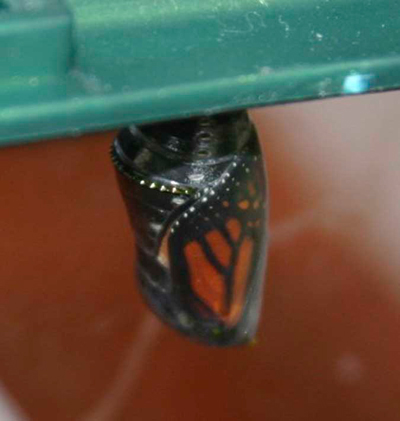Evolution
We talked about evolution at one monthly meeting, then at the following meeting we watched Ben Stein's "Expelled; No Intelligence Allowed."
To see a trailer of Ben Stein's movie, click here.
The theory of Darwinian Evolution is widely accepted throughout the scientific community and is taught in schools, science centers and museums. There are marked similarities between the structures of different life forms which has led most scientists to accept the concept of common descent: that all life has developed from a common ancestor. How did creatures come to be what they are? What can we know with any degree of scientific certainty? When it comes to our faith and our lives, does it really make any difference?
The Theory of Darwinian Evolution draws the conclusion that all life forms developed from an original first cell, through the process of random genetic mutations and natural selection over a very long period of time. The proponents of this theory also presuppose a chance organization of amino acids into the first DNA molecule occurring simultaneously with a random association of molecules to form the first cell wall. Following these events, genetic mutations and natural selection then began to have their evolutionary effects, leading to all the variations seen today.
Creationists propose a different theory of the origin and development of life on earth. They look to The Bible for an account of the events leading to the first life forms and subsequent variations. A strict creationist believes that all life forms were created within a six day period. Most scientists feel that the Creationists' theory is more religion than science; it is Christian metaphysics, because their underlying bias directs their conclusions.
But what about the Darwinists' theory? The notion of a random self-organization of amino acids into DNA and then into the first cell is hardly scientific, in fact it is statistically impossible. Even with all of our current knowledge and controlled laboratory conditions, we cannot combine the raw materials to create even the simplest of life forms. And yet this theory of the origin of the first cell is presented as science in college level Cell Biology text books. This too is more religion than science; it is Atheist metaphysics.
So when we ask, "May a Catholic believe in evolution?" we need to clarify what we mean by that term. There is the science involved, regarding life forms, and apparent change over time; and there are the metaphysical conclusions that come not so much from the science but from an underlying bias. We looked at what we know from science, how it relates to our beliefs, and some of the metaphysical conclusions being put forth as science within the Theory of Darwinian Evolution that are not compatible with Catholicism, or for that matter true science.
A Drop of Clear Water is a lay support group for Catholic teens. Our goal is to bring together teens who love their faith, are committed to chastity, and are ready to explore the wonder and beauty of Catholicism.

